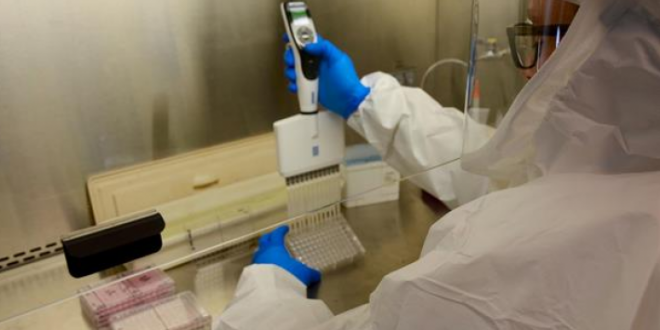TBILISI(BPI)-An antiviral drug called EIDD-2801 that’s in preclinical testing has potential to be developed into the silver bullet that medical professionals seek to treat COVID-19, according to new research published in Science Translational Medicine on April 6.
Since the onset of COVID-19 in late 2019, researchers around the world have been searching for a treatment for the respiratory disease, which is caused by the SARS-CoV-2 virus. No antiviral drugs are currently approved to treat COVID-19 or any other diseases in humans caused by coronaviruses.
But EIDD-2801 has that potential, according to the senior author on the paper, Ralph Baric, PhD, a distinguished professor of epidemiology at the University of North Carolina at Chapel Hill (UNC-Chapel Hill).
“This new drug not only has high potential for treating COVID-19 patients but also appears effective for the treatment of other serious coronavirus infections,” Baric said in a statement.
The emergence of SARS-CoV-2 and other coronaviruses highlights the urgent need for broadly active antivirals to provide a rapid response to new coronavirus outbreaks in humans and animals.
One of these candidates is β-D-N4-hydroxycytidine (NHC, EIDD-1931), a compound that has broad-spectrum antiviral activity against many RNA viruses. In the new paper, researchers from the UNC-Chapel Hill, Vanderbilt University Medical Center, and Drug Innovation Ventures at Emory (DRIVE) explored its potency against coronaviruses.
Upon oral administration of EIDD-2801 in mice infected with SARS-CoV, the researchers observed significantly less body-weight loss and significantly reduced lung hemorrhage in a dose-dependent manner. The researchers also determined that when administered at 12 and 24 hours after infection, EIDD-2801 was able to reduce the viral load and prevent lung damage in addition to reducing weight loss.
The researchers propose that the mechanism of action of EIDD-2801 against targeted viruses may be via induction of error catastrophe related to increased nucleotide transitions of the RNA-dependent RNA polymerase that the viruses require to replicate. Increased mutation rates were positively correlated to degree of therapeutic efficacy in mice.
And EIDD-2801 could actually have an advantage compared with other compounds being developed for treating COVID-19. Researchers have identified that coronaviruses sometimes carry a mutation against remdesivir, a drug that is currently under preclinical development and in clinical trials for treatment of COVID-19.
Clinical trials of EIDD-2801 are expected to begin in the coming months. If successful, the drug could be used not only for SARS-CoV-2 but also for future outbreaks of newly emerged coronaviruses.
commersant.ge
 Business Political Insights BPI.GE
Business Political Insights BPI.GE

















